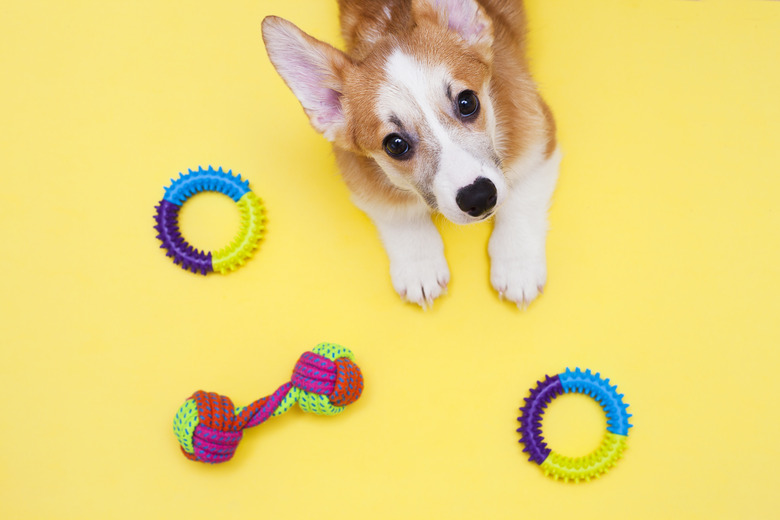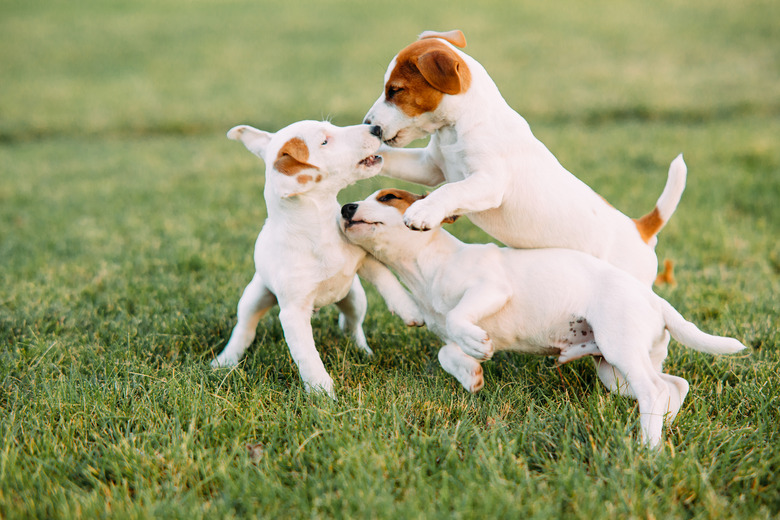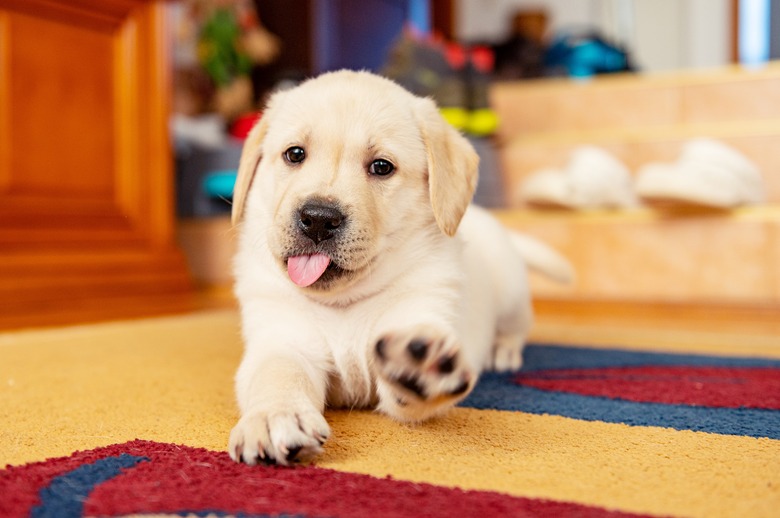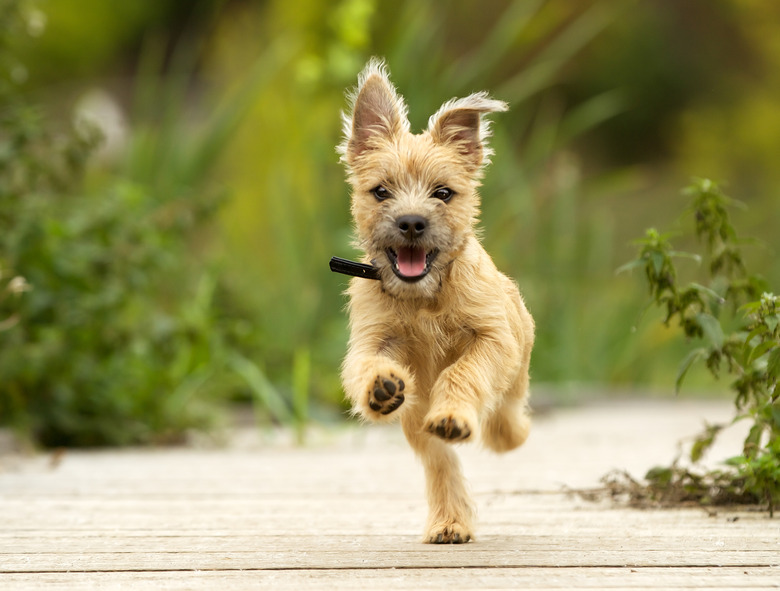The Quickest Way To Stop Puppy Biting
We may receive a commission on purchases made from links.
No matter how much it hurts, it's important to note that biting is a normal puppy behavior! Puppies bite for many reasons, including teething, exploring and playing. Rest assured, puppies will grow out of this excessive biting phase. In the meantime, with a combination of management, enrichment, and training, it is possible to save your clothes and skin and furniture from all the nipping!
Biting is normal puppy behavior
Biting is normal puppy behavior
If your puppy was with their littermates, they'd all be biting each other constantly! Puppies have super sharp teeth in order to receive immediate feedback from their littermates. If they bite another puppy too hard, that puppy will yelp and play will stop. This teaches puppies to mouth softer and softer in order to keep play going. As puppies grow up, they get really good at bite inhibition, or controlling the pressure of their bite, so that they don't cause pain or damage. Play-biting becomes a very enriching form of socialization for many dogs.
It is important to note that we are not dogs! We cannot yelp, growl, or otherwise communicate like dogs. So what do we do?
Manage your puppy's environment
Manage your puppy's environment
We must set our puppy up for success by managing their environment. Use their crate, playpen, leashes, and baby gates to keep them from chasing your kids, chewing your furniture, or biting your favorite robe. If we don't prevent them from practicing these behaviors, they will learn that they are incredibly fun! This will mean it takes longer for your puppy to grow out of nipping.
Puppy enrichment
Puppy enrichment
Since we know biting is a normal and natural puppy behavior, it is very important to provide appropriate outlets! Keep your puppy's mouth busy on puzzle toys like Kongs, Toppls, and Licki Mats. Since they're teething, freezing these items feels great on their sore gums. Consider puppy-safe bones and chew toys, as well.
Biting often goes hand in hand with chasing and tugging. If your puppy is chasing your kids and playing tug-of-war with their clothes, consider a flirt pole toy. This toy is a great way to redirect chasing and biting onto something more appropriate and is very effective at wearing your puppy out.
Lastly, consider safe-socialization opportunities. Playtime with other puppies is a great way for your puppy to receive appropriate feedback on their bite pressure.
Puppy training
Puppy training
For now, hands are not toys! Everyone in the family needs to be on board with this rule. Many of the ways in which humans play with puppies actually teach them to bite. Wrestling with the puppy, especially with your hands, may confuse the puppy about when it is okay to bite and when it is not. It is best to avoid these games with your puppy, especially during the stage of development when bite inhibition is being learned. Anytime you want to play with your puppy be sure to have a toy in your hand!
Lessen your puppy's frustration by teaching recall, leash walking, and relaxation skills. Puppies often get the most "bitey" when they're tired or frustrated. Reinforce (with treats) your puppy's decision to come away from distractions, walk next to you on leash, and sit or lay down when excited (instead of jumping, biting, or barking).
Using positive reinforcement will help you build a strong bond with your puppy. Don't hesitate to hire a certified dog trainer to help you!
Never punish your puppy
Never punish your puppy
Punishing your puppy, either physically or verbally, will not stop your puppy from biting you. Using punishment can cause increased frustration and fear, which will manifest as growling, barking, biting harder, or even more aggressive behavior. The use of punishment will ultimately destroy the bond that you are seeking to create with your puppy. Stick to using positive reinforcement training, management, and enrichment!



